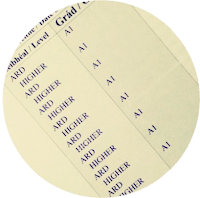The Dreame (Deare love, for nothing less than thee…)
Would I have broke this happy dream;
“I wouldn’t have woken from my dream for anything but you.” For a change, Donne opens his poem with something other than a command. He is still addressing another person, in this case it is his lover.
It was a theme
For reason, much too strong for fantasy,
Therefore thou wak’d’st me wisely; yet
“You waking me doesn’t really interrupt my dream because you are my dream.”
Thou art so true that thoughts of thee suffice
To make dreams truths, and fables histories;
“You make my dreams come true.”
Enter these arms, for since thou thought’st it best,
Not to dream all my dream, let’s act the rest.
This poem is suggestive. Here the speaker invites his lover into his arms in order to act out the rest of his dream in real life. His explanation is that it was her own choice: “since thou thought’st it best.” Donne continues his elaborate argument as to why they should be intimate. He explains that she is an angel (I thougth… thee an angel). Therefore, she knows everything in his heart and mind (thou sawest my heart, And knew’st my thoughts). Therefore, she knows what he was dreaming of (thou knew’st what I dreamt). By that logic, she knew exactly what she was getting into and had no other reason to wake him other than to act out the rest of his dream. It is a convincing argument!
As lightning, or a taper’s6 light,
Thine eyes, and not thy noise wak’d me;
Donne compares her eyes to lightning. Note that this is a simile rather than a metaphor. Why? It is a direct comparison: he uses the word as. What purpose does it serve for the poem? Making his lover believe that she has supernatural powers leads her to think that she has power over him. With this belief, she is more likely to let her guard down.
Yet I thought thee
(For thou lovest truth) an angel, at first sight;
But when I saw thou sawest my heart,
And knew’st my thoughts, beyond an angel’s art,
When thou knew’st what I dreamt, when thou knew’st when
Excess of joy would wake me, and cam’st then,
I must confess, it could not choose but be
Profane, to think thee any thing but thee.
Donne’s is very persuasive. He opens the poem with flattery, proceeds to give an elaborate argument that his lover brought this upon herself. However, despite his best efforts, he is met with rejection. In the last stanza his lover moved away from him:
Coming and staying show’d thee, thee,
But rising makes me doubt, that now
Thou art not thou.
This makes him question whether it is really her: he questions her character. After receiving all these compliments, his lover is more likely to feel the need to not let him down.
That love is weak where fear’s as strong as he;
“Love is weak when fear is strong.”
‘Tis not all spirit, pure and brave,
If mixture it of fear, shame, honour have;
Perchance as torches, which must ready be,
Men light and put out, so thou deal’st with me;
Thou cam’st to kindle, goest to come; then I
Will dream that hope again, but else would die.
He compares her actions to what people do with torches: light them and put them out as they please. This is a metaphor for how she handles his attraction to her. This kind of metaphor makes him look powerless and her victim, provoking feelings of guilt in his lover. He concludes that he is still holding out hope, but if there is no hope, he will die. Donne has used just about every technique to persuade his lover in this poem. We have no reason to believe he was deceptive or manipulative, but he certainly could have been.
You may also like:
Complete Guide: H1 Leaving Cert English Notes and Sample Answers
Complete Guide: H1 Leaving Cert English Notes and Sample Answers
Leaving Cert Sample Answers and Notes



